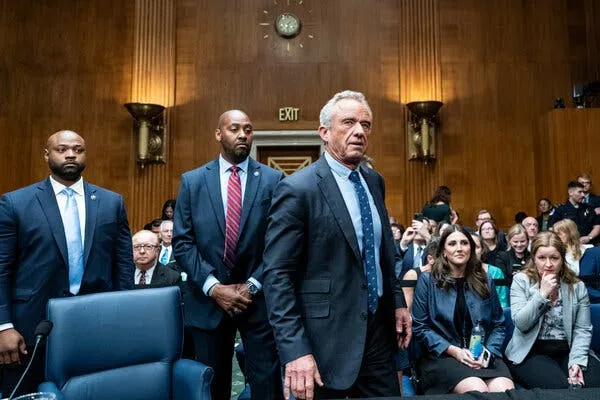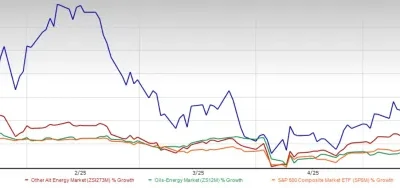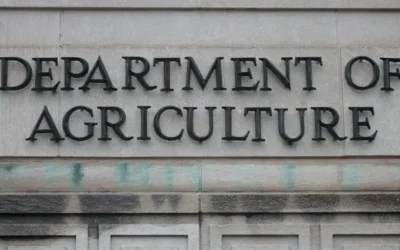Maha Report: A Grim Assessment of American Children’s Health
In a startling assessment that has garnered national attention, Robert F. Kennedy Jr. (RFK Jr.) has released the highly anticipated report known as the MAHA Report (Multidimensional Assessment of Health in America). This report, supported by former President Donald Trump, has painted a grim picture of the current state of child health in the United States. Both Kennedy and Trump characterize American children as the ‘sickest generation’ in history, raising urgent concerns not only about their health but also about national security.
The MAHA Report emphasizes that the current health statistics of American children reveal alarming trends that cannot be ignored. According to the report, there has been a significant rise in chronic health conditions among children, including obesity, diabetes, asthma, and developmental disorders. These conditions, often exacerbated by environmental factors, are shaping a future where the well-being and productivity of a generation are at grave risk.
The Role of Food and Toxins
The White House has responded to the findings of the MAHA Report, echoing its concerns regarding the food supply and environmental toxins as key contributors to the deteriorating health of American youth. The administration’s concern highlights the urgent need for a re-evaluation of food policies and regulatory practices that currently govern what is available to children in terms of nutrition.
In a statement, a spokesperson from the White House noted, “The alarming rates of obesity and food allergies among children signal a crisis requiring immediate action. The prevalence of processed foods, high sugar content, and chemical additives in our food supply undermines our children’s health from the very start of their lives. Coupled with rising environmental toxins, these factors contribute to a growing epidemic that has far-reaching consequences for national health and security.”
The MAHA Report makes a compelling case that the food landscape in America is primarily responsible for such negative health outcomes. With processed foods dominating market choices and a significant lack of access to nutritious options in many regions, dietary habits are having detrimental effects on children. Kennedy and Trump’s advocacy for nutritional reforms resonates with growing concerns from health professionals advocating for healthier school lunches and community programs targeting food education.
Chronic Health Conditions on the Rise
Citing data collected from health organizations and educational institutions, the MAHA Report highlights worrisome trends. Nearly one in five children in America suffers from a chronic health condition. This is reflective of the overall increase in lifestyle-related health issues, including:
- Obesity: The National Institutes of Health has reported a steady rise in childhood obesity, which tripled in the last three decades.
- Asthma: Asthma diagnoses have significantly increased, with environmental triggers exacerbated by air quality and climate change.
- Developmental Disorders: The prevalence of conditions such as autism spectrum disorder has surged, raising critical questions about environmental influences and access to early diagnosis and treatment.
National Security Implications
Perhaps one of the most profound assertions made by the MAHA Report is the connection drawn between child health and national security. Kennedy and Trump posit that a physically and mentally unfit generation poses a risk to the future of the country.
In support of this argument, RFK Jr. stated, “Healthy children are the backbone of a strong nation. If our children are sick, our workforce will suffer, and our ability to defend our country will be compromised. National security is not solely about military strength; it is about the health and well-being of our citizenry.”
The implications of a declining youth population concerned about health also hint at larger trends in recruitment for military services and emergency services, where health standards are paramount. Historically low levels of physical fitness and the increasing prevalence of conditions that disqualify candidates challenge the operational readiness of the nation’s armed forces and public service sectors.
A Call to Action
In light of the findings, RFK Jr. and Trump have called for robust policy changes across the healthcare, education, and agricultural sectors. Key recommendations from the report include:
- Policy Reform: Implementing stricter regulations on food production standards, including banning harmful additives and encouraging organic farming practices.
- Nutrition Education: Strengthening nutritional education programs in schools and promoting healthy eating habits in communities.
- Environmental Regulations: Addressing environmental toxins by enforcing stricter regulations to ensure children’s safety from hazardous materials.
- Access to Healthcare: Increasing funding for pediatric healthcare initiatives, particularly in underserved communities, to deliver critical health services and preventative care.
Public Response and Future Steps
The MAHA Report has ignited widespread discussion and varying reactions from health experts, educators, and parents across the nation. Many lauded the report for shining a spotlight on a pressing issue, while critics questioned potential political motivations behind the findings.
Public health advocates are utilizing the findings as a rallying cry for necessary reform, pushing for legislatures to consider bipartisan initiatives to improve food systems and child welfare. Parents, too, are mobilizing, demanding more accountability from the industries that influence their children’s health.
In perhaps the most vital takeaway from the MAHA Report is the reminder that investing in the health of children today is ultimately an investment in the future of the nation. As governmental and societal structures seek to combat ongoing challenges, it is essential to prioritize the holistic health of this and future generations.
Conclusion
The MAHA Report serves as a powerful reminder of the intricate connections between food systems, environmental health, and the well-being of today’s children. By embracing a multi-dimensional approach to health, policymakers and communities can work towards transforming the trajectory of future generations, ensuring the next generation is not the ‘sickest’ but rather the healthiest and most resilient.
As RFK Jr. and Trump continue to advocate for urgent reforms, the critical conversation surrounding child health dynamics will undoubtedly have lasting implications for both public policy and societal norms. The future health prospects of American children depend on the actions taken—and the reforms implemented—today.







